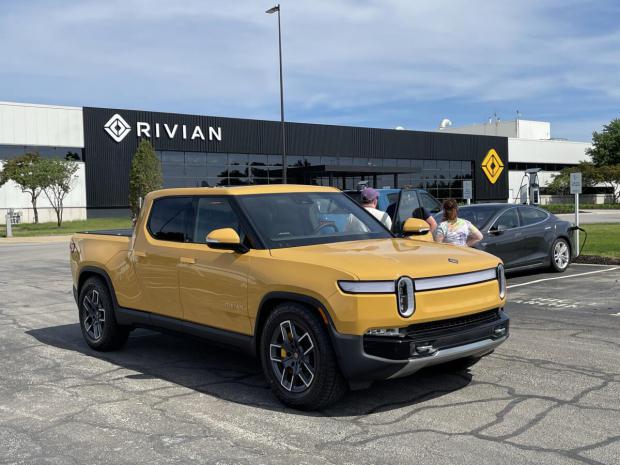
Breaking News
 James O'Keefe: My entire speech at AmericaFest 2025. We're not stopping. Join us to expose..
James O'Keefe: My entire speech at AmericaFest 2025. We're not stopping. Join us to expose..
 U.S. vs. Chinese Military Comparison – Focus on Asia-Taiwan Scenario
U.S. vs. Chinese Military Comparison – Focus on Asia-Taiwan Scenario
 DoJ Sues Four More States for Failing To Produce Voter-roll Data
DoJ Sues Four More States for Failing To Produce Voter-roll Data
 World's Largest Aviation Giant Abandons Google Over Security Concerns
World's Largest Aviation Giant Abandons Google Over Security Concerns
Top Tech News
 Perfect Aircrete, Kitchen Ingredients.
Perfect Aircrete, Kitchen Ingredients.
 Futuristic pixel-raising display lets you feel what's onscreen
Futuristic pixel-raising display lets you feel what's onscreen
 Cutting-Edge Facility Generates Pure Water and Hydrogen Fuel from Seawater for Mere Pennies
Cutting-Edge Facility Generates Pure Water and Hydrogen Fuel from Seawater for Mere Pennies
 This tiny dev board is packed with features for ambitious makers
This tiny dev board is packed with features for ambitious makers
 Scientists Discover Gel to Regrow Tooth Enamel
Scientists Discover Gel to Regrow Tooth Enamel
 Vitamin C and Dandelion Root Killing Cancer Cells -- as Former CDC Director Calls for COVID-19...
Vitamin C and Dandelion Root Killing Cancer Cells -- as Former CDC Director Calls for COVID-19...
 Galactic Brain: US firm plans space-based data centers, power grid to challenge China
Galactic Brain: US firm plans space-based data centers, power grid to challenge China
 A microbial cleanup for glyphosate just earned a patent. Here's why that matters
A microbial cleanup for glyphosate just earned a patent. Here's why that matters
 Japan Breaks Internet Speed Record with 5 Million Times Faster Data Transfer
Japan Breaks Internet Speed Record with 5 Million Times Faster Data Transfer
Rivian CEO On Dealer Laws: 'As Close As You Can Get To Corruption'

Despite its recent partnership with the German auto giant, Rivian has no plans to use Volkswagen's sales network, according to CEO RJ Scaringe. It wouldn't want to. But VW's service network is a far more interesting proposition, as scaling service has proved troublesome for Rivian and fellow direct-to-consumer automaker Tesla. Unfortunately, using VW service centers is probably not going to be possible in the U.S. Scaringe told reporters that dealers have made that almost impossible.
"Unfortunately, in the United States it's not an easy question. We have this horrific state-by-state level of rules that are as close as you can get to corruption," Scaringe told InsideEVs and other reporters during a roundtable.
"I think you essentially have, like, lots of dealers have paid for laws that make it really hard for us to interact directly with the consumer," he continued.
Many states have protections for car dealers codified into law. They broadly protect dealers from having to directly compete with manufacturers, but how those rules are interpreted and applied varies wildly. In Tesla's home state, Texas, the company cannot sell cars out of company stores. Instead, it must sell cars online, and can deliver them at "service centers." Rivian's space in Seattle is similar, as in Washington the company's representatives cannot talk about pricing or take orders.
These laws were—in most cases—designed to protect dealerships from their own manufacturers selling direct-to-consumer, cutting out the middle man and outcompeting them on cost. But they are now stifling brands that don't have dealerships to compete with. There's no AutoNation Rivian or Penkse Tesla losing business when these companies sell in Texas or Washington. There's no option at all if you, as a consumer, want to buy a Tesla and take delivery in Louisiana. So these laws are effectively protecting dealers of other brands from legitimate competition with new brands.
The states with the strongest laws protecting dealers tend to have extremely large and powerful car dealer lobbies, which wine, dine and donate to local politicians to make sure they have plenty of friends in state government. These friendly relationships tend to correlate with laws that make sure it is nearly impossible to buy a car without including a dealer in the transaction. It's not hard to see why Scaringe says this is essentially "corruption." They're spending vast sums lobbying and being rewarded with laws that restrict consumer choice and competition while protecting their profits.
Because the laws are different in every state, you have to grease a lot of wheels to get the train moving. There are still states where it is illegal to sell Rivians or Teslas directly. And there are many states where dealers plan to challenge Volkswagen's plan to launch Scout Motors with a direct-to-consumer model, a la Tesla. If even one challenge in a major market succeeds, it may mess up the whole plan. Because while it's hard enough to sell vehicles directly to consumers, it gets a lot harder if you also have franchises operating as official sales and service locations.

 Advanced Propulsion Resources Part 1 of 2
Advanced Propulsion Resources Part 1 of 2

